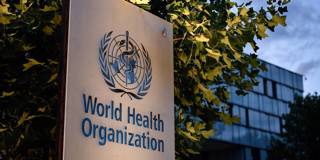
The WHO's Penny-Wise and Health-Foolish Members
Too many of the World Health Organization’s 194 member states have long been indifferent to the need to strengthen the WHO or invest in health. It should not have been this way before COVID-19, and it should not continue being this way after.
LONDON/GENEVA – It beggars belief, but it’s true: In the midst of the COVID-19 crisis, the member states of the World Health Organization are still pondering whether, and by how much, they should increase their regular financial contributions to the organization, whose work continues to save lives within and beyond their borders.